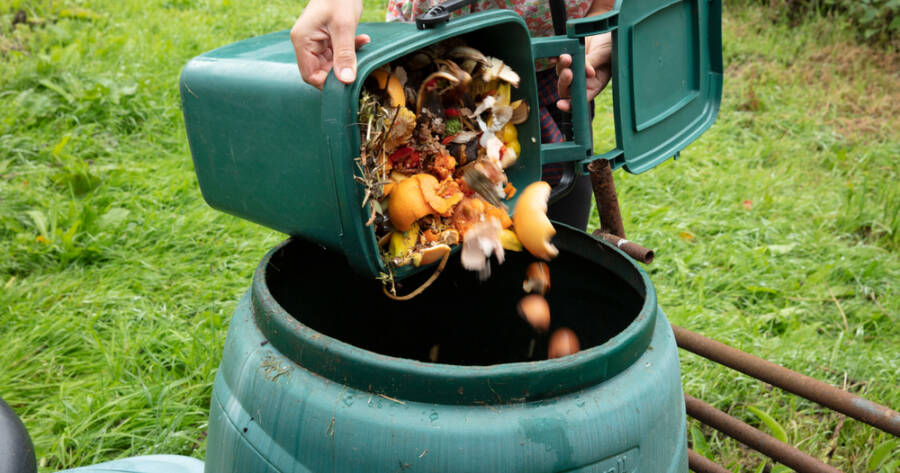Composting is an easy and effective way to reduce waste while enriching the soil in your garden. Instead of throwing food scraps and yard waste into the trash, you can turn them into nutrient-rich compost that benefits plants and the environment. Whether you have a large backyard or a small apartment, composting is a simple habit that helps reduce landfill waste and supports a more sustainable lifestyle.
Why Composting is Good for the Environment
Every year, millions of tons of food waste end up in landfills, where they produce methane, a powerful greenhouse gas. By composting, you help reduce the amount of organic waste that contributes to climate change. Instead of sending food scraps to landfills, you create a natural process that returns nutrients to the soil.
Compost improves soil health by adding organic matter that helps retain moisture and support beneficial microorganisms. This means healthier plants, less need for chemical fertilizers, and better overall soil quality. Composting also reduces the need for synthetic fertilizers, which can harm waterways and wildlife when washed away by rain.
How Composting Helps Your Garden
Adding compost to your garden improves plant growth by enriching the soil with essential nutrients. Unlike chemical fertilizers, compost provides a balanced source of nourishment that improves soil structure and water retention. This is especially useful for dry or sandy soils, which struggle to hold moisture.
Compost also helps prevent soil erosion by strengthening root systems and improving water absorption. If you grow fruits and vegetables, composting enhances their flavor and nutrition by providing a natural source of minerals. Even if you don’t have a garden, you can use compost for potted plants or share it with friends and local community gardens.
Getting Started with Composting
Starting a compost pile or bin is easier than most people think. First, decide whether you want to compost outdoors in a backyard or indoors with a small bin. If you have space outside, choose a shady spot with good drainage. You can use a compost bin or simply create a pile on the ground.
The key to successful composting is balancing green and brown materials. Green materials, such as fruit peels, vegetable scraps, and grass clippings, provide nitrogen. Brown materials, like dried leaves, cardboard, and shredded newspaper, supply carbon. A good mix of both helps speed up the composting process and prevents unpleasant odors.
Turn your compost occasionally to help air circulate and break down materials faster. If you’re composting indoors, consider using a worm bin, also known as vermicomposting. Worms help break down food waste quickly and produce nutrient-rich compost, perfect for small spaces.
Common Composting Mistakes and How to Avoid Them
Many beginners worry about composting mistakes, but most are easy to fix. One common issue is a compost pile that smells bad. This usually happens when there is too much moisture or not enough brown materials. Adding dry leaves or shredded paper can help absorb excess moisture and balance the mix.
Another common problem is a pile that isn’t breaking down fast enough. If your compost seems slow to decompose, try turning it more often to improve airflow. Chopping food scraps into smaller pieces can also help speed up the process.
Some people avoid composting because they worry about attracting pests. To prevent this, avoid adding meat, dairy, or oily foods to your compost pile. Keeping a secure lid on your bin and burying food scraps under brown materials can also help keep unwanted critters away.
Making Composting a Daily Habit
To make composting part of your routine, keep a small container in your kitchen for food scraps. An airtight compost bin or a simple container with a lid works well. Empty it into your outdoor compost pile or indoor bin every few days.
If you’re not sure what to compost, remember that most fruit and vegetable scraps, coffee grounds, eggshells, and yard waste are great choices. Avoid composting meat, bones, dairy, and anything coated in plastic or chemicals. The more consistent you are with composting, the easier it becomes.
A Simple Step Toward a Greener Future
Composting is a small change that makes a big difference for the environment and your home. By reducing waste and improving soil health, you create a more sustainable lifestyle with little effort.
Whether you compost in a backyard bin or a small indoor container, every effort helps. Once you see the benefits of composting, you’ll appreciate how simple and rewarding it can be.

